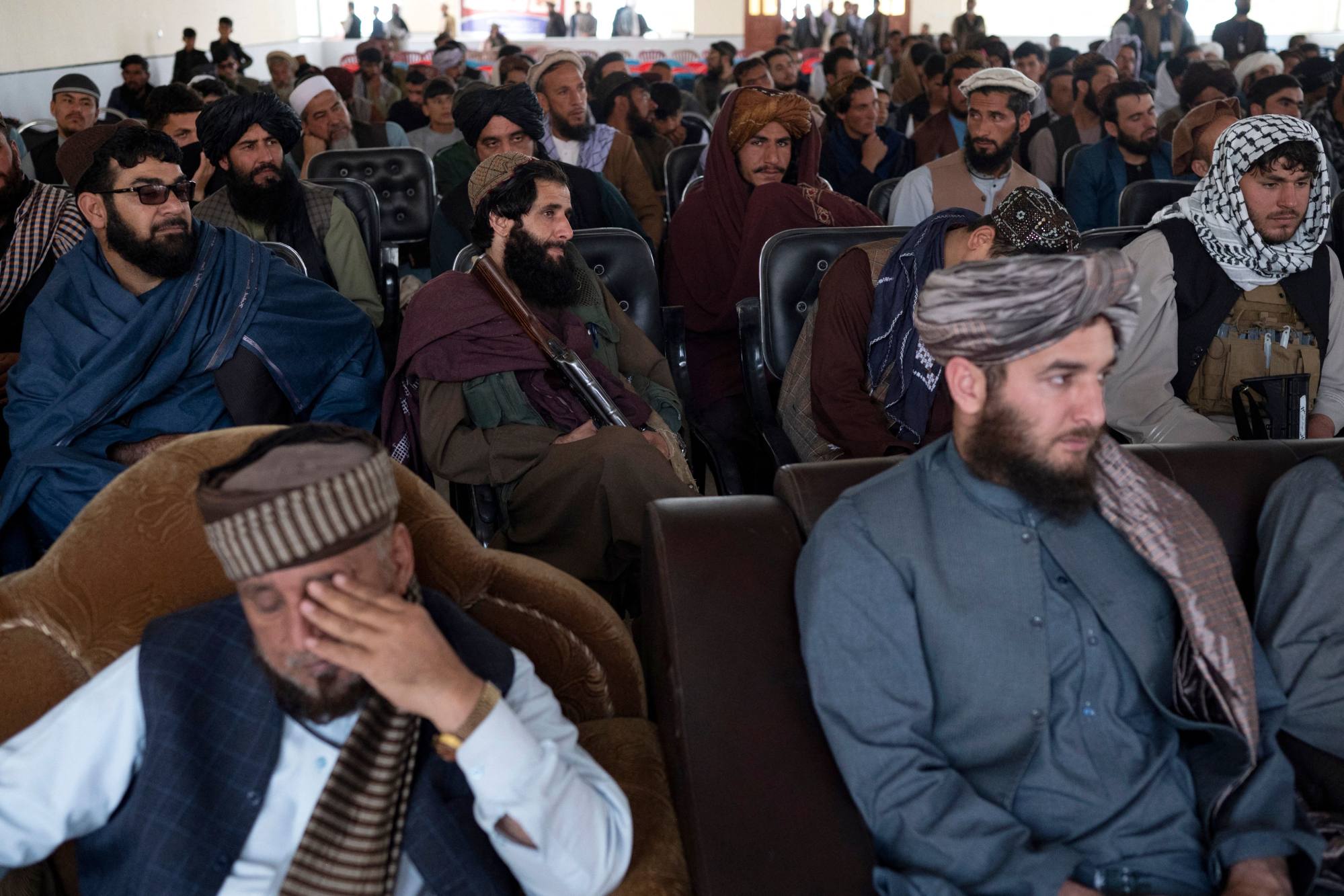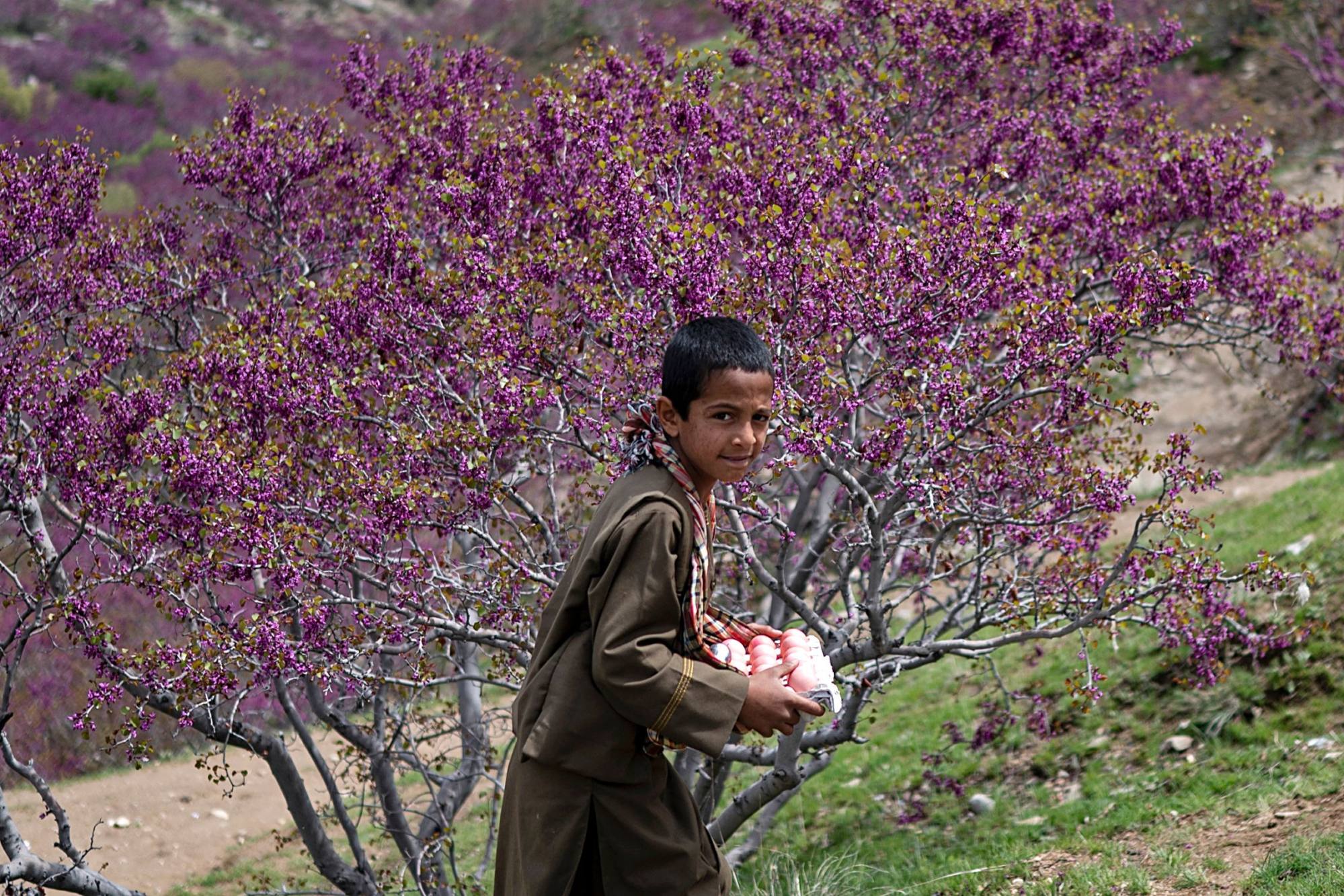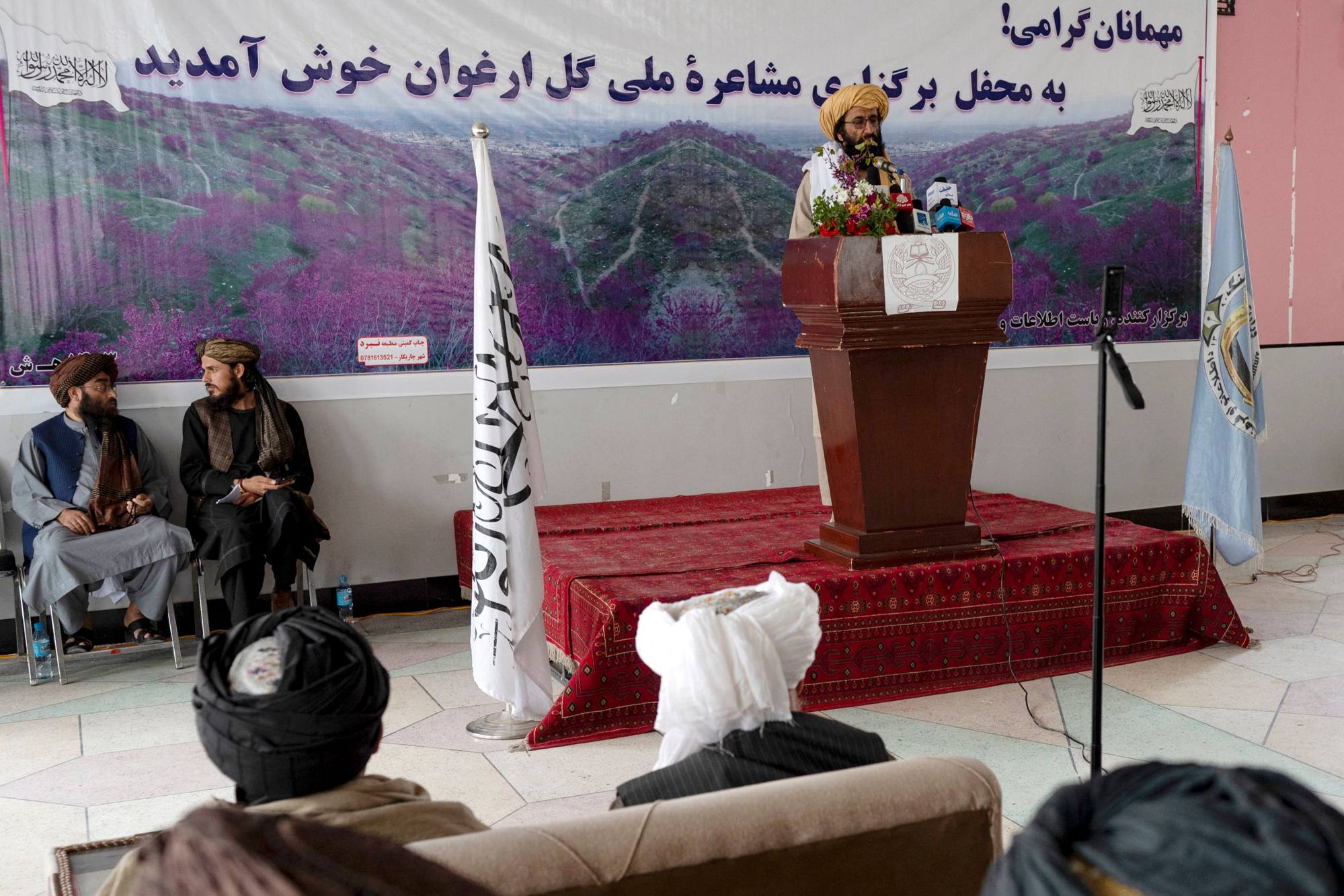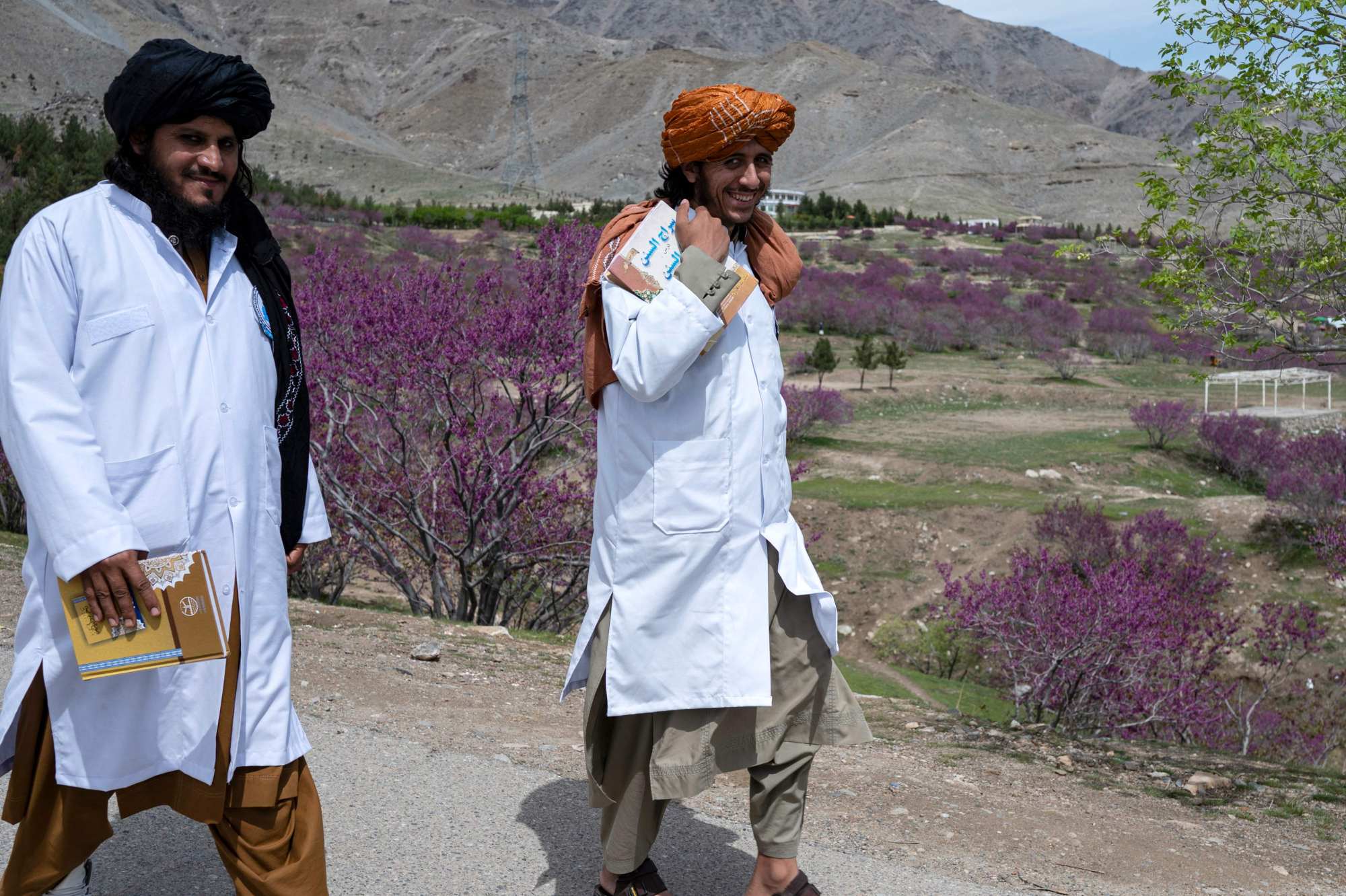“We all must be united, live under the same roof of the Islamic system and extend the hand of brotherhood to each other,” the 22-year-old says later. “These are the messages we convey through our poetry.”

As the Taliban government nears the end of its third year in power, it is working to impose its vision for the nation of more than 40 million people.
Poetry is one of the only art forms that Kabul’s rulers are allowing to flourish – as long as the verses adhere to the government line.
In keeping with Islamic tradition across the world, poetry has been instrumentalised as a tool not only for entertainment and expressions of faith, but also for propaganda.
Roxanna Shapour of the Afghanistan Analysts Network said that by organising events such as poetry readings, the Taliban government is attempting to “create cultural cohesion” to match their pronouncements that “Afghanistan is for all Afghans” now that foreign forces have left.
“It does include bringing everyone together, finding a rallying point,” she says.
Like their former foreign adversaries, the Taliban authorities are campaigning to capture “hearts and minds” – even using stanzas in the promotion of public works.

News media has been constrained, music has been effectively banned under an austere interpretation of Islam, and human faces have been scrubbed from many public hoardings.
Afghanistan’s fledgling film and TV industry has withered, with serials disappearing and cinemas largely shut – unlocked only to show state-sanctioned documentaries.
Poets “had a great role in (the Taliban) victory”, says Mohammad Alim Bismil, a well-known Afghan poet.
“Their anthems were listened to widely,” even beyond Taliban ranks, he says.
One 2008 ballad written to rally fighters to battle against US-led forces described the trenches and attacks against the enemy as “full of joy”.
But the focus has since shifted.

“Before, there used to be war – there were passions and emotions, but now it is finished and the field has changed,” 43-year-old Bismil says.
“There are some people who say the best poetry comes from a suffocating atmosphere.”
Poets now gather in “a peaceful environment” to recite lines about “brotherhood, love and unity among the nation”, says Parwan province information and culture director Shamsul Haq Siddiqui.
However, with the Taliban barring girls from secondary and university education, and women all but banned from working, the message of fellowship does not extend across gender boundaries.
The event in central Parwan province was held in spring, in keeping with an Afghan tradition that sees poets congregate with the first bloom of the Judas trees, which sprout purple flowers for a few weeks each year.
While male poets milled about with purple petals underfoot, a Taliban “Vice and Virtue” squad guarded the entrance, with women barred from entering the park in Parwan.

Sequestered at home, a budding Afghan poetess found private solace and protest in picking up her pen after the Taliban takeover.
“When I see the Taliban … reciting poetry, it makes me very angry,” she says.
“They can do anything they want, but if we want to do the same, they don’t allow us. They should either let us recite poetry and publish it or not recite poetry themselves.”
Too fearful to put her name to her verses, the young woman circulates them privately on WhatsApp:
“I want solitude, to be away from everyone,
To free myself from all these troubles,
To breathe anew and become lost,
To become calm, my soul full of light.”
“When I recite my poetry to my friends, I feel relieved of my pain and feelings – as if I am on top of a mountain,” she says.

